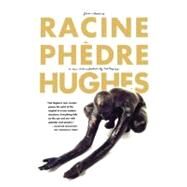- ISBN: 9780374526160 | 0374526168
- Cover: Paperback
- Copyright: 2/28/2000
A lean, high-tension version of a classic tragedy. The myth of Phaedra is one of the most powerful in all of classical mythology. As dramatized by the French playwright Jean Racine (1639-99), the dying Queen's obsessive love for her stepson, Hippolytus, and the scrupulously upright Hippolytus' love for the forbidden beauty Aricia has come to be known as one of the great stories of tragic infatuation, a tale of love strong enough to bring down a kingdom. In this "tough, unrhyming avalanche of a translation" (Paul Taylor,The Independent), Hughes replaces Racine's alexandrines with an English verse that serves eloquently to convey the passions of his protagonists. The translation was performed to acclaim in London in 1998, and the London production, starring Diana Rigg, was staged in 1999 at the Brooklyn Academy of Music. "We are still catching up with Ted Hughes's gift for narrative verse after hisTales from Ovid," one English critic observed after the London premiere. "Little needs to happen on stage when there's a swirling action-packed disaster movie-riddled with sex and violence-in Hughes's free verse." The great French dramatist, poet, historian, and authorJean Racine(1639-1699) counted Boileau and Corneille among his contemporaries. Of Racine's plays still in existence, there are eleven tradegies and one comedy. Nine of his tragedies are based on historical figures of the ancient world; the other two on biblical subjects. The British poet, translator, author, and criticTed Hughes, born in 1930, wrote more than forty books, including, in the last decade of his life,Shakespeare and the Goddess of Complete Being;Tales from Ovid; verse adaptations of Aeschylus'sOresteia, Racine'sPhegrave;dre, and Euripedes'Alcestis; and the bestsellingBirthday Letters. Hughes served as Poet Laureate to Queen Elizabeth II from 1984 until his death in 1998. The myth of Phaedra, or Phegrave;dre, is one of the most powerful in all of classical mythology. As interpreted by the French playwright Racine, the dying queen's obsessive love for her stepson, Hippolytus, has come to be known as one of the great dramas of tragic infatuation, a tale of love strong enough to bring down a kingdom. For this "tough, unrhyming avalanche of translation" (Paul Taylor,The Independent), Hughes replaced Racine's alexandrines with a lean, high-tension English verse that serves eloquently to convey the passions of his protagonists. This translation has won acclaim in a stage version with Diana Rigg as Phegrave;dre. "Hughes's new version grasps the spirit of the original in a taut modern classicism. Everything falls on the eye and ear with splendor and passion."Alastair Macaulay,Financial Times (London) "Hughes's new version is a translation in the truest sense: it moves this tremendous text into the vital context of a different culture. The writing is hard, often quite brutalbut there is an undercurrent of unmistakable brutality in much of Racine. Where he is lyrically elusive, Hughes is physical. Where he is elemental, Hughes is precise and craggy. [Hughes's Phegrave;dre is] agony made visible."John Peter,The Sunday Times (London) "From the opening scene, the play, newly translated from French alexandrines into vivid, muscular free verse . . . continually explodes with emotion. There is no sense of artful restraint here. The drama is presented as a maelstrom of desire and guilt which only subsides in the last act when all passionand most of the characters' liveshave been spent."Charles Spencer,The Telegraph (London) "The French alexandrine couplet is notoriously hard to replicate in English cadences . . . yet, in the . . . fast-moving free verse he used to translate it, [Hughes] seems utterly at home wi






